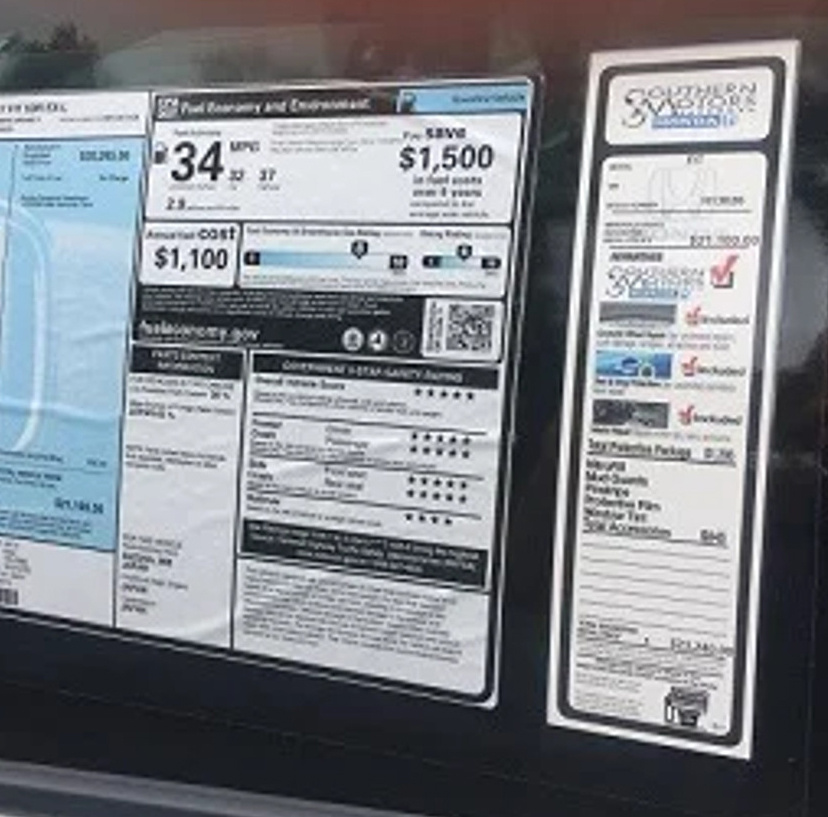Team Velocity Unites Auto Industry Leaders to Define the Future of Dealerships in 2025
Source: USA Today, Tyler Shepherd - Contributor
2025 is set to bring transformative changes to the automotive industry, with dealerships facing the rise of direct-to-consumer (DTC) models, increasing reliance on artificial intelligence, and the ongoing need to streamline fragmented technology stacks. Recognizing these challenges, Team Velocity, a leader in marketing technology and customer experience solutions for the automotive industry, hosted its highly anticipated Automotive Leadership Roundtable (ALR) to bring together top industry experts for an in-depth discussion on the future of automotive retail. Moderated by Yossi J. Levi, the Car Dealership Guy, the panel featured a powerhouse lineup of executives from leading OEMs, dealership groups, and technology providers, all sharing actionable insights on how dealerships can adapt and thrive in an increasingly digital landscape.
Competing With Direct-to-Consumer Giants
The discussion opened with the challenge of competing against online direct-to-consumer retail powerhouses like Amazon Autos and Carvana. Panelists acknowledged that while these companies offer unprecedented convenience, traditional dealerships have a key advantage: personalized service and deep local knowledge.
Yossi Levi kicked off the conversation with a bold take, sharing that “Amazon has arguably one of the best user experiences, but their interface is actually quite basic. The point isn’t aesthetics; it’s about making the process seamless. Dealerships must prioritize ease of use while maintaining the personal trust factor that online platforms can’t replicate.” Brian Benstock, Partner, VP & GM of prominent Honda and Acura dealerships, emphasized, “We must recognize that these companies are relentlessly improving the customer experience. The key is adopting what works while leveraging what makes dealerships unique.”
Technology as a Competitive Edge
To stay ahead, dealerships must embrace technology that simplifies the customer experience. Panelists stressed the importance of consolidating fragmented tech stacks to ensure seamless interactions from browsing to purchase. Rather than juggling multiple platforms, dealerships should adopt comprehensive solutions that unify every dealer touchpoint, like sales, financing, and service scheduling, such as Apollo by Team Velocity.
A case study from Toyota of Tampa Bay highlighted the benefits of a centralized approach, with their newly integrated system achieving 7,000 unique customer sign-ins within just 90 days. David Boice, CEO of Team Velocity, explained, “The more streamlined the experience, the more engagement you’ll see. Customers want everything to feel connected, and technology should enable that.”
AI and Data-Driven Customer Engagement
Artificial intelligence and predictive analytics emerged as central themes, with speakers discussing how AI-driven tools can personalize the shopping experience and improve dealership operations. The ability to anticipate customer needs—such as lease expiration alerts or tailored financing offers—was highlighted as a crucial competitive advantage.
Patricia Muyshondt, CMO of Sames Auto Group, noted “You as a dealer can determine if you want to start reaching out three months before the lease expires, or six months, and then put in front of them potential upgrade options.” Benstock emphasized, “If you’re not leveraging AI to identify customer needs before they do, you’re falling behind.”
Dean Stoneley, CEO of FordDirect, provided Ford Motor Company’s pickup and delivery service as a compelling example, demonstrating how AI-powered logistics led to 3.8 million service experiences and a 17% increase in ROI. Panelists reinforced that AI is not just a trend but a fundamental shift in how dealerships should operate.
Eliminating Tech Fragmentation for a Unified Experience
A major pain point addressed during the panel was the inefficiency caused by disconnected digital platforms within dealerships. With multiple vendors offering various tools, the result is often a cluttered, inconsistent customer journey. Panelists advocated for a more cohesive approach, wherein dealerships work toward consolidating systems under a single, intuitive platform.
Muyshondt shared insights from an A/B testing initiative that assessed multiple tech solutions, ultimately proving that simplifying digital workflows improves customer engagement and sales. “When you have 37 different widgets, all fighting for space on your site, it slows everything down and confuses the customer,” she explained. “We tested different configurations and saw a clear boost in performance when we eliminated unnecessary tools.”
Leveraging AI for Operational Efficiency
Beyond customer engagement, AI is revolutionizing internal dealership operations. Panelists discussed AI tools that help sales teams identify leads, prioritize follow-ups, and optimize pricing strategies. The discussion also touched on machine learning applications, such as Deal Alerts, a dynamic scoring technology that reflects a shopper’s likelihood to purchase, allowing dealers to intelligently prioritize the sales funnel.
One standout example involved an AI-driven dealership tool that facilitated 25,000 virtual vehicle views within just 90 days. “Customers are engaging more with interactive, AI-powered tools,” said Lynne Hudson, Marketing Director of Toyota of Tampa Bay and Sun Toyota, Morgan Auto Group. “This is what the future of automotive retail looks like.”
Balancing Data Use & Privacy
While AI and data-driven strategies offer immense potential, panelists acknowledged the importance of maintaining customer trust. The conversation highlighted the fine line between personalization and intrusion, with speakers stressing that dealerships must be transparent about data usage and provide customers with control over their information.
Hudson put it, “A little personalization is good, but if a customer feels like we know too much, it can become creepy. We have to be responsible with how we use data.” Boice noted, “Customers expect a seamless experience, but they also expect privacy. It’s about finding the right balance.”
Final Thoughts: Embracing Change for a Stronger Future
The ALR panel made one thing clear: the automotive retail industry is evolving rapidly, and those who adapt will thrive. From embracing AI and predictive analytics to streamlining digital platforms, dealerships must take proactive steps to modernize their operations while preserving the personalized service that sets them apart from DTC giants.
As 2025 approaches, Team Velocity and its partners remain committed to supporting dealerships through these transitions. By focusing on integration, customer-centric technology, and data-driven decision-making, the industry is poised to enter a new era of automotive retail—one that blends innovation with the trusted relationships that have long-defined dealership success.


